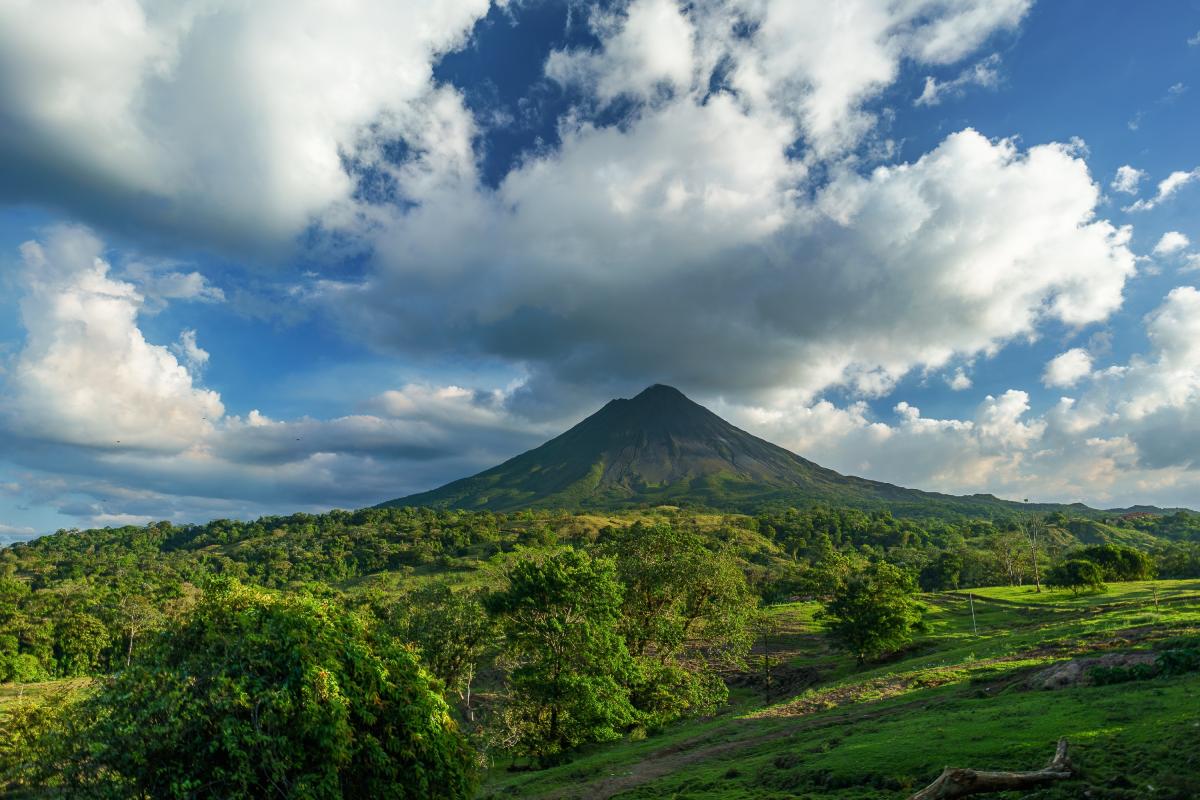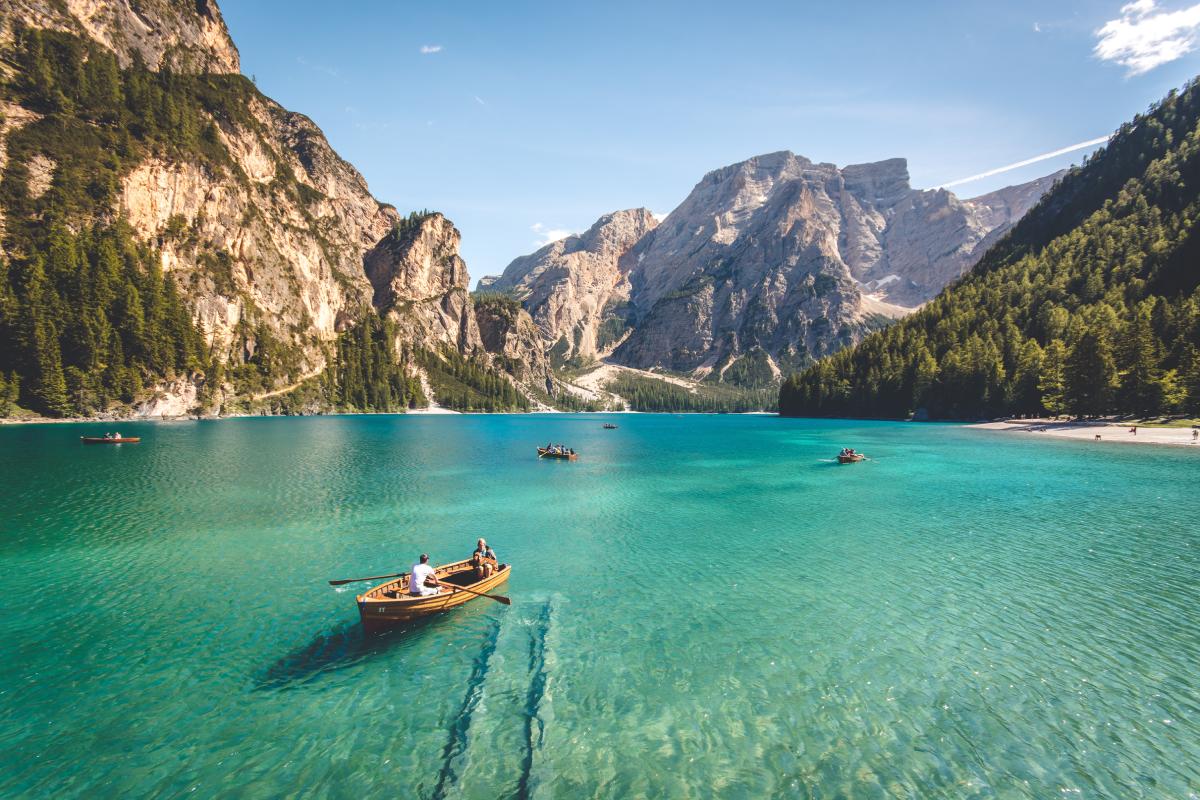Introduction
As the world becomes more aware of the need for environmental conservation, sustainable travel practices have gained significant importance. One such approach is eco-tourism, which focuses on exploring and appreciating the natural beauty of our planet while minimizing negative impacts on the environment. In this blog post, we will delve into the concept of eco-tourism and its significance in preserving our planet’s delicate ecosystems. Additionally, we will highlight some of the top green travel destinations around the world that offer unique eco-tourism opportunities.
Brief explanation of eco-tourism and its significance
Eco-tourism can be defined as responsible travel to natural areas that conserves the environment, sustains the well-being of local communities, and provides educational experiences for visitors. It is a form of tourism that promotes sustainable practices, protects biodiversity, and supports the preservation of natural and cultural heritage. By engaging in eco-tourism, travelers have the opportunity to connect with nature, gain insights into different cultures, and contribute to the conservation of our planet.
Importance of sustainable travel for environmental conservation
Sustainable travel is of utmost importance in the face of pressing environmental challenges. Traditional tourism can have detrimental effects on ecosystems, leading to habitat destruction, pollution, and the depletion of natural resources. In contrast, sustainable travel practices prioritize the well-being of the environment, local communities, and future generations. By choosing eco-friendly transportation, supporting local businesses, and participating in conservation efforts, travelers can reduce their carbon footprint and contribute to the preservation of natural resources.
Thesis statement: Exploring the top green travel destinations around the world
In this blog post, we will explore some of the most captivating green travel destinations that offer remarkable eco-tourism opportunities. These destinations have demonstrated a commitment to sustainable practices, environmental conservation, and the promotion of responsible tourism. By visiting these places, travelers can not only experience the beauty of nature but also contribute to the preservation of our planet’s rich biodiversity. Join us on this journey as we uncover the wonders of these top green travel destinations and inspire a new generation of eco-conscious travelers.
Benefits of Eco-Tourism
Eco-tourism offers a range of benefits that extend beyond personal travel experiences. By engaging in eco-friendly and responsible travel practices, individuals contribute to the preservation of natural and cultural heritage, support local communities and economies, and gain valuable education and awareness on environmental issues.

Preservation of natural and cultural heritage
One of the significant benefits of eco-tourism is the preservation of natural and cultural heritage. Many green travel destinations are home to diverse ecosystems, unique wildlife, and indigenous communities with rich cultural traditions. By promoting sustainable tourism practices, these destinations can protect their natural resources, including forests, coral reefs, and wildlife habitats. Through responsible tourism, visitors can witness the beauty of these environments firsthand while helping to conserve them for future generations. By respecting local customs, traditions, and protected areas, travelers contribute to the long-term preservation of these invaluable natural and cultural treasures.
Support for local communities and economies
Eco-tourism plays a crucial role in supporting local communities and economies. When travelers choose green travel destinations, they often stay in locally-owned accommodations, dine at local restaurants, and purchase handmade crafts produced by local artisans. By engaging with the local community and supporting their businesses, eco-tourists provide a direct economic benefit that contributes to sustainable development and poverty alleviation. This type of tourism empowers local residents, enabling them to preserve their cultural identity and traditional way of life while improving their quality of life through increased economic opportunities.
Education and awareness on environmental issues
Eco-tourism provides a unique opportunity for education and raising awareness about environmental issues. Many green travel destinations offer guided tours and educational programs that focus on sustainability, biodiversity conservation, and the importance of protecting natural resources. By participating in these activities, travelers gain a deeper understanding of environmental challenges and learn about practical solutions to address them. This knowledge can inspire individuals to adopt sustainable practices in their daily lives, make informed choices, and become advocates for environmental conservation. Ultimately, eco-tourism fosters a sense of environmental stewardship and promotes a more sustainable approach to travel and life in general.
In conclusion, eco-tourism offers a multitude of benefits that go beyond the individual travel experience. By choosing green travel destinations and engaging in eco-friendly practices, travelers contribute to the preservation of natural and cultural heritage, support local communities and economies, and gain valuable education and awareness on environmental issues. As we continue to explore the top green travel destinations in the upcoming sections, let’s remember the positive impact we can make as responsible and environmentally conscious travelers.
Green Travel Destination - Costa Rica
When it comes to eco-tourism, one destination stands out for its exceptional commitment to sustainability and conservation efforts. Let’s explore Costa Rica, a green travel destination that offers a wealth of eco-tourism opportunities, unique natural attractions, conservation projects, and sustainable accommodations and activities.

Overview of Costa Rica’s eco-tourism initiatives
Costa Rica has gained worldwide recognition for its outstanding eco-tourism initiatives, making it a leader in sustainable travel. The country’s government, along with various conservation organizations, has implemented progressive policies and practices to preserve its natural beauty and protect its rich biodiversity. Costa Rica’s eco-tourism initiatives aim to promote responsible travel, minimize the ecological footprint of tourism activities, and ensure the well-being of local communities.
Unique natural attractions and conservation projects
Costa Rica is blessed with an incredible array of natural attractions. From lush rainforests and cloud forests to pristine beaches and volcanic landscapes, the country offers a diverse range of ecosystems that support a remarkable variety of plant and animal species. It is home to several national parks and protected areas, such as Manuel Antonio National Park, Tortuguero National Park, and Monteverde Cloud Forest Reserve. These areas not only provide breathtaking experiences for visitors but also serve as crucial habitats for endangered wildlife.
The conservation projects in Costa Rica are equally impressive. Organizations like the Costa Rica Conservation Foundation and Rainforest Trust work tirelessly to protect and restore habitats, conserve endangered species, and promote sustainable land use practices. Through their efforts, Costa Rica remains a sanctuary for biodiversity, and visitors have the opportunity to witness conservation in action.
Sustainable accommodations and activities
Costa Rica takes pride in its wide range of sustainable accommodations and activities. Eco-lodges and ecolodges are popular choices for travelers seeking environmentally friendly accommodations. These establishments prioritize eco-friendly practices, such as energy efficiency, water conservation, waste management, and the use of local and organic products. Staying in these accommodations allows visitors to enjoy their Costa Rican experience while knowing they are minimizing their environmental impact.
When it comes to activities, Costa Rica offers an abundance of sustainable options. Travelers can embark on guided nature hikes, bird-watching tours, or even participate in sea turtle conservation projects. Engaging in these activities not only provides unforgettable experiences but also supports local communities and contributes to the preservation of Costa Rica’s natural and cultural heritage.
In conclusion, Costa Rica sets the standard for eco-tourism with its remarkable initiatives, unique natural attractions, and sustainable accommodations and activities. By choosing Costa Rica as a travel destination, eco-conscious travelers can immerse themselves in a country that values environmental conservation and community well-being. Let’s continue our exploration of green travel destinations, drawing inspiration from Costa Rica’s commitment to preserving our planet and creating a positive impact through responsible tourism.
Green Travel Destination - New Zealand
Continuing our exploration of eco-tourism opportunities, let’s turn our attention to the captivating destination of New Zealand. Known for its stunning landscapes, diverse ecosystems, and commitment to environmental sustainability, New Zealand offers a wealth of eco-friendly activities and experiences for travelers seeking a green travel destination.

Introduction to New Zealand as an eco-friendly destination
New Zealand has long been recognized for its breathtaking natural beauty, including majestic mountains, pristine lakes, and ancient forests. But beyond its postcard-worthy scenery, the country takes immense pride in its efforts towards eco-tourism and sustainable travel. With a deep respect for its indigenous Maori culture and a strong focus on conservation, New Zealand has become a beacon for responsible tourism and environmental stewardship.
Notable eco-tourism activities and experiences
When visiting New Zealand, travelers have a plethora of eco-tourism activities and experiences to choose from. One highlight is exploring the country’s national parks, such as Fiordland National Park and Tongariro National Park. These protected areas showcase New Zealand’s diverse ecosystems and offer opportunities for hiking, bird-watching, and experiencing the country’s unique flora and fauna up close.
Additionally, New Zealand is renowned for its adventure tourism, with many eco-friendly options available. Travelers can engage in activities like sustainable whale-watching in Kaikoura, kayaking through pristine waterways, or even embarking on eco-friendly wildlife encounters, such as observing penguins or dolphins in their natural habitats. These activities not only provide unforgettable experiences but also promote the conservation of New Zealand’s natural resources.
Efforts towards biodiversity conservation and sustainable development
New Zealand is committed to protecting its biodiversity and promoting sustainable development. The country has implemented various initiatives and conservation projects to preserve its unique ecosystems and endemic species. For instance, New Zealand is a global leader in predator-free initiatives, aiming to eradicate invasive predators like rats, stoats, and possums to protect native birds and wildlife.
Furthermore, New Zealand’s sustainable development practices extend beyond conservation efforts. The country has embraced renewable energy sources, with a significant proportion of its electricity coming from renewable sources like hydroelectric power and wind energy. This commitment to sustainable energy contributes to reducing the environmental impact of tourism activities and supports New Zealand’s overall goal of achieving carbon neutrality.
In conclusion, New Zealand exemplifies the essence of an eco-friendly travel destination. With its breathtaking landscapes, diverse eco-tourism activities, and dedication to biodiversity conservation and sustainable development, New Zealand offers a unique and fulfilling experience for travelers seeking responsible and green travel opportunities. By choosing New Zealand as a destination, visitors can actively contribute to the preservation of its natural heritage while enjoying the wonders this beautiful country has to offer.
Green Travel Destination - Norway
As we continue our exploration of green travel destinations, let’s turn our attention to the enchanting country of Norway. Known for its breathtaking landscapes, commitment to sustainability, and harmonious coexistence with nature, Norway offers a plethora of eco-tourism opportunities for travelers seeking responsible and environmentally friendly experiences.

Highlighting Norway as a sustainable travel destination
Norway has gained international recognition for its dedication to sustainable tourism and responsible travel practices. With its stunning fjords, majestic mountains, and pristine wilderness, Norway has become a haven for nature enthusiasts and eco-conscious travelers. The country’s commitment to preserving its natural heritage while promoting sustainable development sets it apart as a prime destination for green tourism.
Ecological diversity and responsible tourism practices
Norway’s ecological diversity is a testament to its commitment to environmental preservation. From the awe-inspiring fjords along its coastline to the dramatic landscapes of its national parks, Norway offers a wealth of natural wonders to explore. Travelers can immerse themselves in activities such as hiking, kayaking, and wildlife spotting, all while adhering to responsible tourism practices that prioritize the protection of the environment.
One notable example of responsible tourism in Norway is the concept of “allemannsretten,” or the right to roam. This unique tradition allows everyone to access and enjoy the country’s vast natural spaces responsibly. Travelers are encouraged to embrace this principle by respecting wildlife, leaving no trace, and following designated trails to minimize their impact on the environment.
Engagement with local communities and cultural preservation
In addition to its stunning natural landscapes, Norway values the preservation of its cultural heritage and the involvement of local communities in sustainable tourism initiatives. Travelers have the opportunity to engage with indigenous Sami communities, learning about their traditional way of life and their deep connection to the land. By supporting local artisans, visiting cultural sites, and participating in community-led initiatives, visitors can contribute to the preservation of Norway’s rich cultural tapestry.
Furthermore, Norway’s commitment to sustainable practices extends beyond the realm of nature conservation. The country has made significant strides in renewable energy production, with a focus on hydropower and wind energy. This dedication to clean energy sources aligns with Norway’s overarching goal of reducing greenhouse gas emissions and promoting a sustainable future.
In conclusion, Norway stands as a shining example of a green travel destination, offering travelers a unique blend of natural beauty, responsible tourism practices, and cultural immersion. By experiencing Norway’s ecological diversity, engaging with local communities, and embracing sustainable travel principles, visitors can actively contribute to the preservation of its pristine environments and cultural heritage. Let Norway’s commitment to sustainability inspire your own eco-tourism adventures and create lasting memories while protecting the planet.
Tips for Eco-Friendly Travel
As we embark on our eco-tourism adventures, it’s important to keep in mind that our individual choices and actions can have a significant impact on the environment and local communities. By adopting sustainable travel practices, we can minimize our ecological footprint and contribute to the preservation of the destinations we visit. Here are some valuable tips for eco-friendly travel:

Pack light and choose sustainable travel gear
When preparing for your eco-friendly journey, remember to pack light and opt for sustainable travel gear. The weight of your luggage directly affects fuel consumption, so traveling light reduces carbon emissions. Additionally, choose durable, reusable, and eco-friendly travel products such as refillable water bottles, bamboo utensils, and eco-conscious toiletries. By minimizing waste and investing in sustainable travel essentials, you can make a positive impact on the environment.
Minimize waste and practice responsible consumption
One of the key principles of eco-friendly travel is minimizing waste and practicing responsible consumption. Bring a reusable shopping bag and water bottle to avoid single-use plastics. Dispose of waste properly by utilizing recycling and composting facilities. Choose accommodations that prioritize waste reduction and support local recycling initiatives. Furthermore, be mindful of your energy and water usage by turning off lights, air conditioning, and faucets when not in use. Small steps towards waste reduction can make a significant difference in preserving the pristine environments of green travel destinations.
Support local businesses and community-based tourism
To truly experience the essence of eco-tourism, immerse yourself in the local culture and support the communities you visit. Choose locally owned accommodations, restaurants, and tour operators that prioritize sustainable practices and have a positive impact on the community. Engage with local artisans and purchase authentic souvenirs that showcase traditional craftsmanship. Participate in community-based tourism initiatives that empower local people and contribute directly to their economic well-being. By supporting local businesses, you become an active participant in the preservation of local heritage and the sustainable development of the destination.
By incorporating these eco-friendly travel tips into your adventures, you can contribute to the long-term conservation of natural resources, support local communities, and enhance your travel experience. Remember, the choices we make as travelers have the power to shape the future of our planet. Let’s explore the world responsibly, leaving a positive footprint behind and inspiring others to follow in our sustainable footsteps.
Choosing Responsible Tour Operators
When embarking on eco-tourism adventures, it’s crucial to select tour operators who share your commitment to environmental conservation and sustainable travel. Responsible tour operators play a vital role in ensuring that your travel experiences have a positive impact on the environment and local communities. Here are some important considerations when choosing tour operators with eco-conscious practices:

Importance of selecting tour operators with eco-conscious practices
By choosing tour operators with eco-conscious practices, you can actively contribute to the preservation of natural and cultural heritage while supporting sustainable development in the destinations you visit. Responsible tour operators prioritize environmental sustainability, respect for local communities, and the promotion of ethical and low-impact tourism. They strive to minimize negative environmental impacts, conserve biodiversity, and create positive social and economic outcomes for local communities. Selecting such tour operators allows you to align your travel experiences with your values and make a meaningful difference.
Researching certifications and eco-labels
One effective way to identify responsible tour operators is to research certifications and eco-labels associated with sustainable tourism. These certifications indicate that the tour operator has met specific criteria related to environmental performance, community engagement, and cultural preservation. Look for certifications such as “Green Globe,” “Rainforest Alliance,” “Travelife,” or “EarthCheck.” These labels demonstrate a commitment to sustainability and responsible practices. Additionally, eco-labels specific to the destination, such as national or regional sustainable tourism certifications, can also provide valuable insights into the tour operator’s commitment to eco-conscious operations.
Questions to ask when evaluating tour operators
When evaluating tour operators, it’s essential to ask relevant questions that help assess their commitment to responsible and sustainable tourism. Consider the following questions:
- What measures do you take to minimize environmental impacts during tours?
- How do you engage with and support local communities?
- Do you provide opportunities for cultural immersion and respect local traditions?
- How do you promote wildlife conservation and protection of natural habitats?
- Do you collaborate with local conservation organizations or community initiatives?
- What efforts do you make to educate travelers about sustainable practices?
Asking these questions allows you to gauge the tour operator’s values, environmental practices, and commitment to responsible tourism. Their responses will help you make an informed decision and choose operators who align with your eco-conscious travel aspirations.
By selecting tour operators with eco-conscious practices, researching certifications and eco-labels, and asking relevant questions, you can ensure that your travel experiences are not only enriching and enjoyable but also contribute positively to the destinations and communities you visit.
Responsible Wildlife Encounters
Encountering wildlife in their natural habitats can be an awe-inspiring and transformative experience. However, it’s essential to approach wildlife encounters with responsibility, respect, and a commitment to animal welfare and conservation. Here are some guidelines to ensure ethical wildlife viewing and interaction during your eco-tourism adventures:

Guidelines for ethical wildlife viewing and interaction
-
Observe from a distance: Maintain a respectful distance from wildlife to avoid causing distress or interfering with their natural behavior. Use binoculars or zoom lenses for closer views instead of approaching too closely.
-
Do not feed or touch animals: Feeding wildlife disrupts their natural feeding habits and can lead to dependency and negative impacts on their health. Refrain from touching or attempting to handle animals, as this can cause stress and harm.
-
Respect habitats and nesting sites: Stay on designated trails and paths to avoid trampling vegetation and destroying nesting sites. Minimize noise and sudden movements to prevent disturbance to wildlife.
-
Do not disturb mating or nesting behaviors: Be mindful of breeding and nesting seasons, and avoid activities that may disrupt these critical behaviors. Follow any guidelines provided by tour guides or park officials to protect vulnerable wildlife during sensitive periods.
Promoting animal welfare and conservation
-
Choose responsible wildlife sanctuaries and rehabilitation centers: Support wildlife sanctuaries and rehabilitation centers that prioritize animal welfare, rehabilitation, and conservation. Ensure these facilities promote conservation education and work towards reintroducing animals into the wild whenever possible.
-
Avoid activities that exploit animals: Steer clear of attractions that involve animal performances, riding elephants, or any activities that exploit wildlife for entertainment purposes. These practices often involve cruelty and are detrimental to animal welfare.
-
Research wildlife-friendly accommodations: Look for accommodations that have policies in place to protect wildlife and their habitats. Some eco-lodges and resorts actively support local conservation efforts and implement sustainable practices to minimize their ecological footprint.
Participating in wildlife conservation programs
-
Volunteer for wildlife conservation projects: Consider participating in wildlife conservation programs that allow you to contribute directly to conservation efforts. These programs may involve research, habitat restoration, monitoring, or community engagement initiatives focused on protecting wildlife and their habitats.
-
Support conservation organizations: Donate to reputable conservation organizations working to protect endangered species and their habitats. By supporting these organizations financially, you can contribute to their efforts in preserving wildlife and promoting sustainable practices.
-
Spread awareness: Share your experiences and knowledge about responsible wildlife encounters with others. Raise awareness about the importance of protecting wildlife, supporting conservation initiatives, and advocating for ethical tourism practices.
By following these guidelines, promoting animal welfare, and actively participating in wildlife conservation programs, you can ensure that your wildlife encounters are responsible, respectful, and contribute to the long-term conservation of Earth’s precious biodiversity.
Conclusion
As we reach the end of our exploration into eco-tourism and sustainable travel, let’s take a moment to recap the many benefits of choosing green travel destinations and embracing responsible travel practices. By doing so, we not only have the opportunity to create meaningful and unforgettable vacation experiences but also contribute to environmental conservation and support local communities.

Recap of the benefits of eco-tourism and sustainable travel
Throughout this journey, we have discovered the numerous advantages that eco-tourism and sustainable travel offer:
-
Preservation of natural and cultural heritage: By visiting green travel destinations, we help preserve pristine natural landscapes, protect endangered species, and safeguard cultural traditions and practices that are integral to local communities.
-
Support for local communities and economies: Eco-tourism initiatives often prioritize community involvement, providing economic opportunities and empowering local residents. When we choose sustainable travel, we directly contribute to the well-being and prosperity of these communities.
-
Education and awareness on environmental issues: Green travel destinations offer opportunities for education and learning about environmental conservation. By immersing ourselves in nature and engaging with conservation initiatives, we gain a deeper understanding of the importance of protecting our planet.
Encouragement to choose green travel destinations for a meaningful and eco-friendly vacation
As you plan your next vacation, consider the immense satisfaction and fulfillment that comes from choosing a green travel destination. Whether it’s exploring the lush rainforests of Costa Rica, venturing into the captivating wilderness of Canada’s national parks, or embarking on an Arctic adventure in Norway, the possibilities for eco-friendly and sustainable travel are abundant. By opting for these destinations, you can enjoy breathtaking natural wonders while leaving a positive impact on the environment.
Inspiration to become ambassadors of sustainable travel and environmental conservation
Now more than ever, our world needs passionate advocates for sustainable travel and environmental conservation. As you embark on your eco-friendly adventures, let your experiences inspire others to follow in your footsteps. Share your stories, photos, and insights on responsible travel practices, and encourage friends, family, and fellow travelers to make conscious choices that prioritize the well-being of our planet.
Together, we can be catalysts for change. By choosing green travel destinations, practicing responsible tourism, supporting local communities, and spreading awareness, we can create a global movement that embraces sustainability and environmental conservation.
So, let’s embark on our green travel journeys with a renewed sense of purpose and commitment. Let’s cherish the beauty of our planet, protect its delicate ecosystems, and ensure that future generations can experience the wonders of nature. Remember, every step we take towards sustainable travel brings us closer to a greener, healthier, and more vibrant world.


